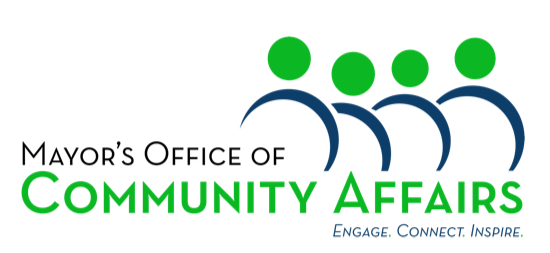(Washington, DC) – Today, Mayor Muriel Bowser reminded residents of rental assistance and eviction prevention programs to support District residents impacted by the coronavirus (COVID-19) public health emergency. The programs are funded as part of $40 million in federal relief funding from the CARES Act awarded to the District from the U.S. Department of Housing and Urban Development.
“As the District continues to respond to and recover from this public health emergency, we will continue to prioritize protections and supports to meet the housing needs of residents,” said Mayor Bowser. “We encourage residents, particularly our income-renters, to take advantage of these innovative programs.”
A number of programs are available to support rental assistance and housing stability, including direct relief and support for nonprofits in housing and community development.
The Department of Housing and Community Development (DHCD) administers the COVID-19 Housing Assistance Program (CHAP), a $6.2 million program for low-income renters that can provide up to three months of rent arrears since April 2020. Eligible applicants may be able to apply for an additional three months for a total of six months of rental assistance. DHCD has directed approximately $2 million each to three local nonprofit organizations to administer the relief: Housing Counseling Services, Greater Washington Urban League and United Planning Organization.
CHAP is being delivered in coordination with the Department of Human Services’ (DHS) Emergency Rental Assistance Program (ERAP). Eligible applicants who earn less than 125% of the Federal Poverty Level can obtain assistance through ERAP; those who earn above that would seek assistance through CHAP. One of the three local nonprofits listed above can assist with applying to either program to ensure applicants are assisted regardless of income levels.
In addition, two weeks ago, Mayor Bowser and DHCD awarded $1.5M across 30 nonprofit organizations that support housing and community development work. These grants will assist with COVID-19 relief and recovery efforts and services, such as housing counseling and legal support. Additional awards will be made to qualifying nonprofits in the coming weeks.
“When we surveyed our portfolio of affordable housing providers back in June, rental assistance for tenants affected by COVID-19 was the top policy proposal suggested as a response to the crisis,” said DHCD Director Polly Donaldson. “Our rental assistance resources remain available and we are grateful to our nonprofit housing and community development organizations for spreading the word and conducting intake for these vital programs. We now need credible messengers in the community to share the word with their neighbors in need and help us ensure the most vulnerable among us are seeking assistance.”
Part of the federal relief funding includes $27.7 million authorized by the CARES Act in Emergency Solutions Grants (ESG), a program administered at DHS. ESG funding will be used to support individuals and families experiencing homelessness in response to the COVID-19 public health emergency, including homelessness prevention activities and rental support. In addition, the District plans to use approximately $821,000 of its balance of the CARES Act Community Services Block Grant funds to support DHS’s Homelessness Prevention Program (HPP), which works to prevent families at risk of becoming homeless from entering the shelter system by providing services and resources that stabilize the family within the community.
These federal investments supplement local enhancements to critical programs such as ERAP, which received $6.6 million in additional funding in FY21 as well as and continued investments in HPP and Project Reconnect. These projects provide a range of flexible homelessness prevention program for families and individuals impacted by COVID-19.
“As District households continue to experience historic uncertainty during the public health emergency, DHS and our partners are committed to supporting residents who may be at risk of homelessness,” said DHS Director Laura Zeilinger. “The reforms we have made to our crisis response system means we are better positioned than ever before to support residents experiencing housing instability, but these unprecedented times call for unprecedented investments.”
At the onset of the public health emergency, the Council of the District of Columbia passed legislation to ensure that residents cannot be evicted for the duration of the public health emergency plus 60 days; nor can they be charged late fees for the duration of the public health emergency. Rent increases are also prohibited during the COVID-19 public health emergency plus 60 days.
A sub-group of the District’s Economic Recovery Team (DERT), coordinated by the Office of the Deputy Mayor for Planning and Economic Development (DMPED), is also working proactively to expand the coordinated set of programs available to protect renters from eviction due to the impacts of COVID-19 following the end of the prohibition period. The District’s eviction prevention program will include rental assistance, mediation and legal aid, counseling, and homelessness prevention services.
Mayor Bowser reaffirmed her commitment to investments in affordable housing with her Fiscal Year 2021 budget, recognizing that both short- and long-term efforts must be ongoing to preserve housing affordability and stability for all District residents. The Mayor’s FY21 budget includes an investment of $100 million in the Housing Production Trust Fund – for the sixth consecutive year – and a $1 million investment in the Housing Preservation Fund.
At the start of her second term, Mayor Bowser set a bold goal to deliver an additional 36,000 units of housing – including at least 12,000 units of affordable housing – by 2025. From January 2019 through July 2020, the District has produced 10,658 units, of which 1,692 are affordable. You can track the District’s progress toward #36000by2025 at open.dc.gov/36000by2025.
All program and application information is available on coronavirus.dc.gov/rent.



